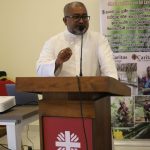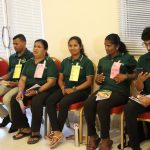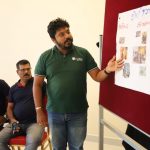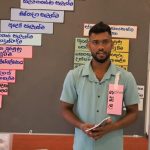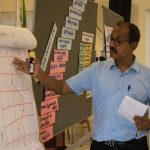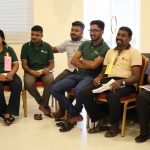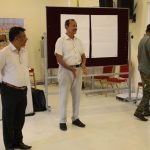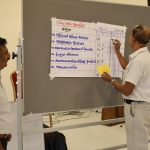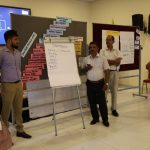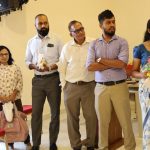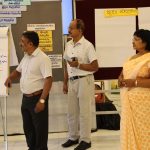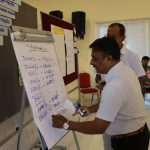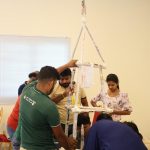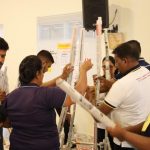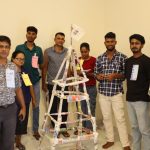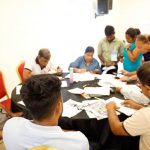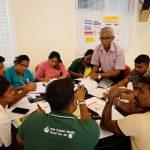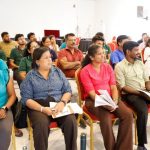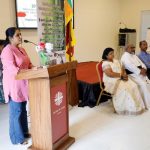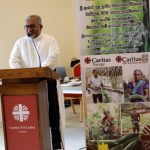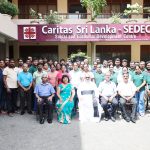Caritas Sri Lanka – SEDEC organized a dynamic Entrepreneurship Development Program from May 20 to 23, 2025, bringing together 42 dedicated staff members from eight dioceses across the country. These participants are actively engaged in implementing the project “Improving Rural Livelihoods, Enhancing Food Security, and Building Climate Resilience,” which is supported by Caritas Norway and carried out in Sri Lanka.
The four-day residential training, held at the Caritas Sri Lanka – SEDEC premises, aimed to strengthen entrepreneurial skills and economic leadership among staff, empowering them to better support smallholder farmers and vulnerable communities.
Participants came from the dioceses of Anuradhapura, Badulla, Chilaw, Colombo, Galle, Kandy, Kurunegala, and Ratnapura, making the program a truly collaborative and diverse learning experience. The training was led by three professional CEFE (Competency-based Economies through Formation of Entrepreneurs) trainers—Mr. W.M.S. Wijesinghe, Mr. H.M. Balasooriya, and Mrs. Nilani Tissera—who enriched the sessions with their extensive knowledge, practical insights, and engaging facilitation techniques.
The program was implemented under the visionary leadership of Rev. Fr. Luke Nelson Perera, National Director of Caritas Sri Lanka – SEDEC. The Food Security and Sustainable Agriculture Unit played a central role in organizing the event, with coordination led by Mrs. Nilani Tissera (National Coordinator) and support from Mr. K. Hershanth, Mrs. Amali Shamani, and Ms. Deepthi Jayakody (Regional Coordinators).
This initiative supports Outcome 02 of the national program “Improving Rural Livelihoods, Enhancing Food Security, and Building Climate Resilience in Sri Lanka.” Specifically, the training contributes to the goal of increasing smallholder farmers’ incomes and improving their access to markets.
Using the CEFE methodology, participants engaged in an experiential learning environment that emphasized real-world business planning, market opportunity analysis, innovation, and risk management. The sessions fostered teamwork, creativity, and practical problem-solving—key skills for driving sustainable economic development at the grassroots level.
By equipping diocesan staff with entrepreneurial skills, the program seeks to create a ripple effect in local communities, facilitating the implementation of income-generating activities, stronger market linkages, and more resilient livelihood strategies at the grassroots level.
As Caritas Sri Lanka advances its mission of social transformation and poverty alleviation, this training program represents a vital step toward fostering a more self-reliant and economically empowered rural Sri Lanka.


